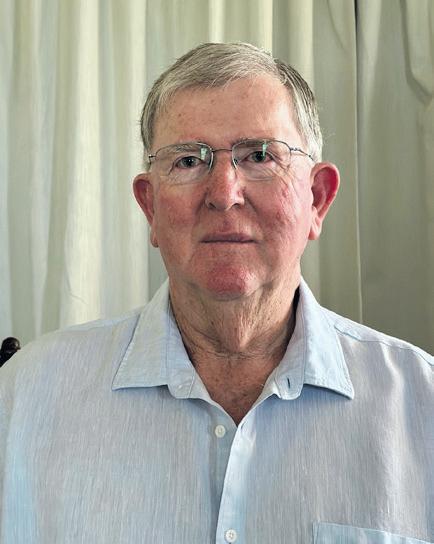
2 minute read
JANELLE SAFFIN MP
river network (river bathymetry) to inform the hydrodynamic model.
This detailed mapping provides a comprehensive overview of the river systems and can now be used by local councils and consultants for food modelling and planning to reduce the impact of foods.
The data forms the critical scientifc evidence base that can be used by the NSW Government, local councils, and non-government organisations for a range of other purposes including:

• land use
• transport and housing planning
• environmental and ecological studies
• hydrological assessments, and
• food mitigation strategies and plans for the Northern Rivers region.
NSW Drug Summit
The Minns Government has announced that the NSW Drug Summit will be held in Sydney on 4th and 5th of December this year, with two days of regional summits in October.
In 1999 I attended the Drug Summit conducted by the Carr Labor Government, which is widely acknowledged as a signifcant turning point in drug and alcohol policy. It lead to initiatives such as the safe injecting room in Kings Cross which has been saving lives for 23 years.
But that was a long time ago.
Since then we have had the Special Commission of Inquiry into Ice which came up with some fantastic recommendations and I anticipate these will all be on the table at the Drug Summit.
I have a mountain of reports from round tables and inquiries over recent years, all saying the same thing: recognise drug use as a health and social justice issue.
It was a Minn’s Government key election commitment to hold a drug summit because of the great need in the community for drug policy reform. We need a drug policy that is ft for the 21st century.
Cutting red tape for teachers
Great news for our teachers, with changes to teacher accreditation and professional development that will free them from a lot of tedious red tape and administrative work.
Teachers are required to do 100 hours of professional development every fve years to maintain their accreditation.
The changes mean they won’t be forced to do 50 of these hours in previously mandated areas, but instead they will be able to identify the professional development that is relevant to their teaching and the education of their students.
And they will no longer need to write time consuming evaluations of the professional development they complete.
These changes will ensure that every hour of professional learning that our teachers do is valuable to their classroom.

Ahead of the September 14 local government election we have asked all 17 candidates a series of questions testing their response to some of the major concerns of the community.
Rates and what the council does with the money is a perennial issue.
Rates
1. Can you guarantee voters that you will not support a special rate variation (SRV) above the annual rate pegging limit in the next term of council?
2. If council can’t increase income via a rate rise, what can it do to balance its books?
3. How can councils help ratepayers with the cost of living issues facing communities?
Andrew Baker

Answer 1: No. Recent history says such a guarantee would be irresponsible. I can undertake to oppose any excessive SRV.
Before the 2016 election I advertised I would oppose a 41% SRV.
After considering many possible cuts and hours of very robust debate it was clear that anything less than 26% SRV would not remedy the many fnancial defciencies my frst 2012 councillor term










